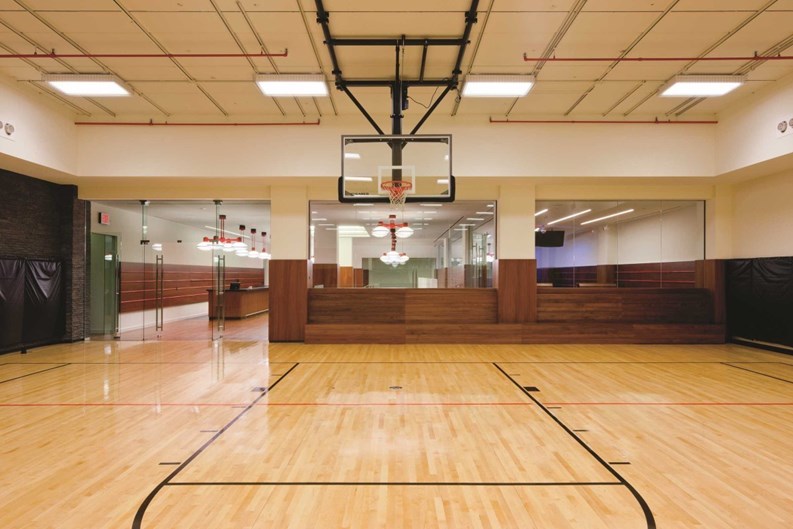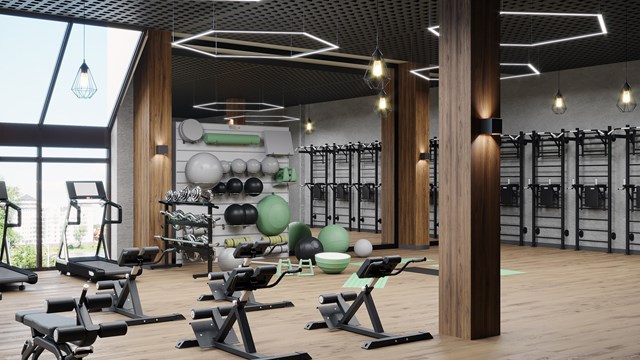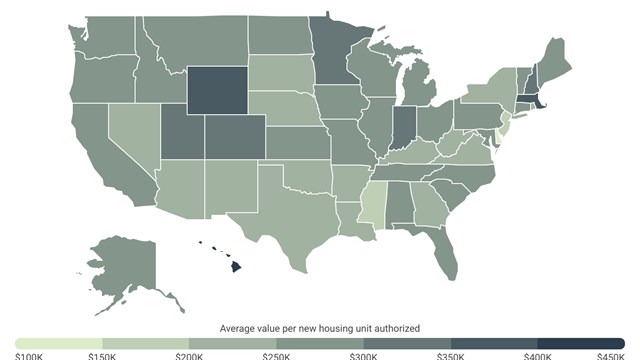New York City is known for having some of the very best urban opportunities in the world—among the best colleges and schools, museums and libraries, as well as some of the finest parks, the most interesting architecture, the most intriguing mix of diverse people, and among the very best collection of historic sites in the nation.
For residents, access to all that on a daily basis does not come cheap. Residential space in the Big Apple is costly no matter where you live and these days space, more than luxuries, has been the most sought after item in an apartment. Still, location is king, and New Yorkers have gotten used to living in what others would think of as cramped quarters, while generally not enjoying some of the extras of community living that their apartment-dwelling suburban friends take for granted.
However, it would seem those days are gone. While location and square footage are still essential aspects of a property’s attractiveness to a potential buyer, they are no longer the only major considerations. For several newer and established properties around town, a building’s amenities are becoming a drawing point in and of themselves.
Among the most luxurious co-op/condo amenities now provided to residents include wine cellars, grocery delivery coolers, in-house dog grooming services, yoga studios, media/screening rooms, video arcades for kids, craft rooms and bowling alleys. Some of these items are becoming passé, while others now are unwritten requirements of a building’s amenities package. But more often these days, that amenities package amounts mostly to the facilities provided in a building, such as a gym, sauna, swimming pool, and a massage room. In those areas, it seems that buyers believe bigger may well be better.
Luxury Redefined
Some of the most luxurious special amenities that New York City condo properties are offering today include thousands of square feet of space dedicated to resort-style recreational offerings. In The Aldyn, condominium residences at 60 Riverside Boulevard, the space dedicated to amenities—at 40,000 square feet—and the style of those amenities set a new standard for residential living in the city, market insiders say. With a children’s playroom, swimming pool, squash court, basketball court, billiard room, a full gym, sauna and steam room and more, The Aldyn defines what state-of-the-art amenities are all about.
“I don’t think anyone has as large a two-lane bowling alley as the Aldyn,” says Larry Kruysman, sales director for Manhattan-based Corcoran Sunshine Marketing Group.
What is considered a “top” amenity has changed over time, and even in recent years. Some items that used to be considered essential amenities for high-end properties, such as media rooms, or wine cellars, now are passé. Some of that change is technology driven—virtual doormen and virtual concierges are slowing becoming the norm, and big screen TVs are affordable and everywhere—and some of the change is a recognition that a building’s amenities should appeal to a wider group of residents rather than a small percentage.
While condos in the Aldyn may offer the most space dedicated to amenities in the city, it is just a part of a growing trend among newer residential properties that are offering a host of new amenities to suit the tastes of their residents.
On Manhattan's Upper West Side, the Laureate has a resident's lounge with a baby grand player piano, a solarium, built-in banquettes and a large flat-screen television. The lounge opens onto two landscaped terraces. A full-service gym featuring state-of-the-art equipment and several televisions adjoins the lounge. Children can escape into a private outdoor playground, or into a play room dedicated to young toddlers. Next to the play room, an adjoining study room for older kids has large-screen computer terminals, study tables and a writing wall. Residents of all ages can take advantage of the soundproof music studio located in the basement, where they can jam without disturbing others. Like any building in this upper demographic, the Laureate of course has a 24-hour doorman/concierge, cold storage and bicycle storage, and it also has a pet spa, and a parking garage with direct elevator access.
Reade57, in Tribeca, features many amenities for residents including a fully-equipped state-of-the-art fitness center, a resident's lounge, a 24-hour doorman, a live-in resident manager, private, cold storage and bicycle storage, an outdoor landscaped courtyard, and in-residence Asko washers and dryers. L haus, in Long Island City, boasts 15,000 square feet of amenities. Residents have access to a 10,000-square-foot landscaped yard which includes a rolling lawn with a new children's playground, chaise lounges and tables, a built-in grill, wet bar, plus a stone nature path with its own water feature. Adjacent to the yard are the club room, fitness center, yoga room and media room. L haus also has a roof terrace, furnished with private cabanas overlooking the Manhattan and Brooklyn skylines.
These days, luxury condo owners are often assuming that certain amenities will be part of any purchase in a residential building. Those amenities include a 24-hour doorman and a full-time concierge service, to handle duties such as getting packages, ordering theater tickets, making travel arrangements for residents, arranging dog walking help, or other tasks.
“A concierge service is almost expected in a high-end building,” Kruysman says.
Luxury property buyers also expect certain amenities such as a gym and a pool. These facilities used to be extras but are becoming common.
Facilities that used to offer a more common amenity, such as pet spas, have to some degree gone by the wayside. The smaller percentage of pet-friendly buildings has been a factor in the decline of amenities offered just for pet owners. These days, having common space that residents in the building can share is an important part of an amenity package, Kruysman says.
Evolving Demographics
Changing city lifestyle factors are driving certain types of amenities, such as features intended to be all-inclusive for families, which are a growing segment of the market.
Due to the substantial increase in recent years of families living in city residential buildings, certain offerings are becoming more prevalent, and common needs are being recognized. Creating more of a cohesive sense of community in a building is one goal of the amenities package a building now offers residents. While in the past a building having a gym used to be a basic amenity, children’s playrooms have become almost standard now, says Jacky Teplitzky, managing director of Prudential Douglas Elliman, in Manhattan.
Generally, though, the trend of many residential properties in the city is to offer more practical amenities, such as storage for bikes, suitcases and the like, as well as the requisite concierge service, Teplitzky says. “They are back to the basics, with amenities including a full-time doorman, a gym, a children’s playroom, storage, a garage and a roof deck,” she says.
Economic factors also are influencing the developments and amenities being offered in the co-op/condo market. Because of the recession and consequent capital drought, new inventory is not coming into the New York City market and is not expected to arrive for the better part of two years at least. A lack of inventory in the rental market has made lease rates high, nudging renters to consider buying co-ops and condos.
Industry insiders say the market for high-end co-ops and condos (valued at $5 million or more) in the city set a fast pace in March and April, appearing to lead to inevitable price increases. A large percentage of the housing demand is being driven by foreign buyers. For some brokers, a large percentage of their buyers of high-end residences in the city are coming from overseas, including from places such as Argentina, Chile, Venezuela, Columbia, India, China, Russia and increasingly, Brazil.
“They are becoming a major economical power. Brazil is the sixth-largest economy in the world,” Teplitzky says.
Most of these foreign buyers are using a New York City address as a second home/investment, since they believe in the integrity of the Big Apple’s real estate market. In fact, many of the top sales of New York City properties went to foreign buyers, including a Russian billionaire’s $88 million purchase of a full floor condo at Central Park West for his daughter in 2011. In May 2012, an unnamed buyer purchased a penthouse in the under construction One57 condo for upwards of $90 million.
For many of these buyers, amenities aren’t as important as for families that will be living in a building year-round. But both groups of buyers are eyeing similar types of properties—those with three or four bedrooms. They also are considering the location of a property when they are mulling it.
Part of the reason for The Aldyn’s enviable amenities package is its location, which isn’t as attractive for some city dwellers, but is for others. Being on Riverside Boulevard isn’t the ideal location for some buyers, but for those with children, having the amenities of the Aldyn, and 21 acres of park space nearby, is ideal.
“It used to be you were living in Manhattan for location,” says Wei Min Tan, executive vice president of Rutenberg Realty. “But with the Aldyn it’s like a lifestyle, like a resort.”
Amenities for residential buildings in the city have evolved quickly over the past several years, Tan says. Ten years ago, the rooftop deck or lounge was the cool amenity, then gyms became the next thing, but they were small at first. Five years ago, the residential building gyms started to become much bigger. “Right now, the in thing is the size of the amenities,” Tan says.
Even so, buyers today are value-conscious, and they want to get the most for their money, says Shlomi Reuveni, executive vice president of Brown Harris Stevens SELECT. With apartments ranging from $4.5 million to $20 million, the Laureate’s amenities package was meant to entice buyers. The tactic appears to have worked, since the development is 85 percent sold. Similarly, amenities were a major component of the 36-unit 50 Union Square West development, Reuveni says.
He is also seeing buyers come from all over the globe buying here. “Around 15 percent of our buyers are foreign buyers. The international buyers are smart buyers. And absolutely, amenities in a building make a difference,” Reuveni says.
Jonathan Barnes is a freelance writer and a regular contributor to The Cooperator.







Leave a Comment